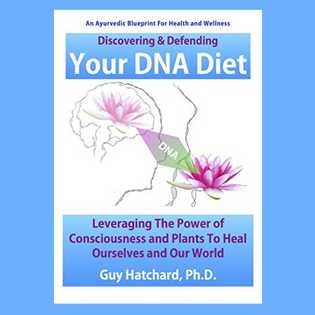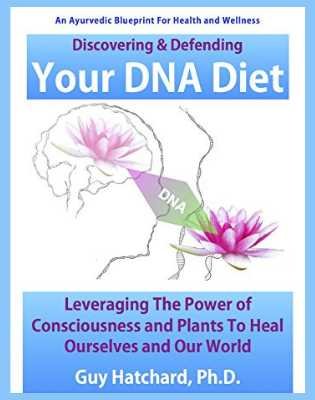Dear Minister,
You have just assumed centralised control of our health service, at a time when a survey of more than 900 doctors has just found that the health workforce is at risk of “catastrophic collapse.”
Last week it was reported that all cause mortality is at its highest level ever. You responded yesterday that “I’m satisfied that we now have the means to get on top of the issues.” What means are you planning to adopt?
For the past two and a half years of the pandemic, the government has faithfully followed the advice of a number of acknowledged health experts. The essence of this advice has been and continues to be that Pfizer mRNA Covid vaccination will be the safe and effective way to control the pandemic and ease any pressure on the health service. Accordingly, the government has used all the means at its disposal including saturation advertising, control of media content, and coercive mandates to encourage vaccination. As a result, we are among the most Covid vaccinated nations in the world.
By now you must be fully aware that the expected result has not materialised. Pfizer mRNA vaccination has been neither effective nor safe. It does not stop transmission or reinfection. Last week the government tacitly acknowledged problems with its strategy when the Covid Response Minister Dr. Ayesha Verrall announced that health sector staff under 30 years old will not be required to take another booster because it would put them at significant and increasing risk of serious adverse health effects.
This does not go far enough. It is very incongruous that despite the MoH recognition that under thirties health workers are at serious risk of vaccine side effects sufficient to cancel mandates for this age group, the government is still paying for saturation advertising advising vaccination and boosters for younger age groups without any warning of risks. It is even offering financial incentives.
You are no doubt aware that a large number of studies conducted and published overseas are pointing to serious problems with mRNA vaccination. These include immune deficiency, aggressive cancers, neurological conditions, respiratory illness, cardiac incidents, and stroke. There has been an increase in sudden unexplained deaths that has affected not just the elderly but also working age people. A number of countries are reporting significantly reduced birth rates.
From the outset in New Zealand and elsewhere among the medical profession, there was an entrenched expectation of vaccine safety. Myocarditis for example, when cases first surfaced, was assumed to occur at a very low rate and to be mild and short-lived. Late last year Dr. Astrid Koornneef wrote to me on behalf of Dr. Ashley Bloomfield, estimating that the mRNA vaccine caused a slightly elevated risk of myocarditis as low as 3 in 100,000. Due to underreporting, along with an unwillingness on the part of GPs and hospital staff to recognise or acknowledge the classic myocarditis symptomatology among vaccine recipients, this has proved to be a huge under-estimate.
A direct user survey of a cross-section of America done by a professional polling firm (with a 4% nominal margin of error) shows a 3.7% rate of myocarditis among those Americans who took the vaccine who responded to the survey. This number is consistent with earlier runs of the survey with different respondents. It is 500 times higher than the CDC numbers. A paper published in Nature shows rates of myocarditis post vaccine that can be up to 140 times higher than the prior background rate. That is not a “slightly elevated risk.”
Therefore it should be apparent to you that it is necessary as a priority to have a clear picture of exactly what conditions are causing our health service to become overloaded. We hope that this is one investigation you are planning to initiate.
You must be wondering: How did it come about that the government was so misinformed? The government placed a great deal of trust in information supplied by Pfizer. As you must be aware, their assessment of the results of vaccine trials has been widely called into question in scientific literature. As an experienced trade unionist and lawyer, you will know that some pharmaceutical corporations can be great self-promoters who place emphasis on the profit motive over public safety.
mRNA vaccination is using novel biotechnology ultimately derived from experimental gene therapy, which was already known to have safety issues. Yet the use of the term ‘vaccination’ was no doubt very reassuring for our doctors, government officials, and the public. Was this justified?
Vaccination is a time-honoured article of faith within the medical profession. It was in 2019 almost unthinkable among NZ medical professionals that any vaccine could be unsafe. The completion of universal vaccination strategies develops an almost ritualistic affirming satisfaction among doctors and nurses. In this case, the outcome proved very disappointing, if not alarming. Reported adverse effects have run at 50 times higher than traditional vaccines. Yet the health service has found it very hard to give up their faith in the power of the word ‘vaccine’. It is time for the government to reconsider the advice they have received to date.
It is also clear from your own Ministry of Health data that gradually the unvaccinated are becoming less and less vulnerable to Covid infection, hospitalisation, and death. These figures are very stark. We have reported and referenced them extensively here at the Hatchard Report along with many of the issues raised above. It is consequently time to withdraw restrictions on the employment of unvaccinated health staff, they are not a risk to the health service. Moreover many others among our workforce are still affected by unnecessary and counterproductive vaccine mandates in the private and public sectors.
It is also apparent that the government’s pandemic advertising and vaccine promotion strategy has not kept up with the published scientific information. During the last few weeks, television and media advertising has switched messaging to suggest quite incorrectly that mRNA and flu vaccines offer protection for life that is superior to natural immunity. This disconnect between scientific fact and public messaging is to say the least alarming.
The public must be increasingly aware that despite vaccination Covid reinfection is a growing problem, that mRNA vaccination adverse effects can be serious, and that the flu vaccine offers very weak protection, as low as 19% according to some overseas sources. Can you please reassess how government Covid advertising copy and messaging is produced and vetted?
The public Covid education and advertising programmes of the government have been so extensive, that a number of misapprehensions have taken hold of the public psyche. Reversing these may be an embarrassment for the government, but it is a vital matter of public health and trust. The pandemic and our pandemic response has been a collective disaster, one that the machinery of government, the health service, and the whole population needs to face squarely with the emphasis on recovery and reconciliation.
Even within the WHO organisation there is reportedly increasing private recognition that a biotech laboratory ‘accidental release’ of an experimental pathogen was at the root of the global spread of Covid. New Zealand is not alone in failing to recognise the implications of this. Genetic sequences are far more mobile and invasive than was initially realised. It is now time to reassess the safety and desirability of much global biotech research, including gene editing designed to produce sequences which influence the functioning of our immune system.
I know there are many highly qualified professionals whose precautionary advice may have been overlooked so far by the government. Now is the time to reassess how widely and how cautiously new health technology is adopted. For hundreds of years, advances in hygiene, nutrition, and lifestyle have served public health very well. Rapid changes in modern diet, behaviour, and medicine have placed our longstanding gains of longevity at risk.
At the Hatchard Report, we hope that our health service, newly reorganised under your direct supervision, will take the initiative to investigate the root causes of the current pressures in the health service and adjust policies and interventions appropriately.
We wish to reiterate in conclusion that it is very necessary and critical to seek clear and unequivocal data concerning the prevalence of the specific conditions which are overloading hospitals and GPs. No consistent causal analysis is possible without this information. This data should be freely available to a wider range of independent competent analysts and researchers so that you may receive better advice.
There is sufficient reliable evidence already published to pause our current vaccination strategy and promotion and consider our options. The health of the nation is at stake.
Yours sincerely,
Guy Hatchard PhD






